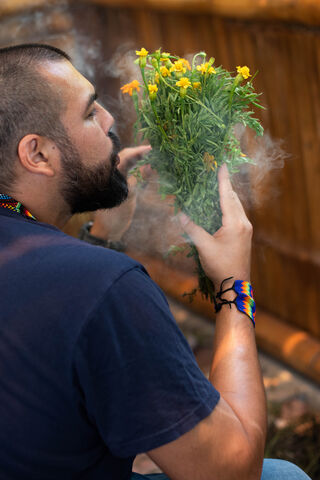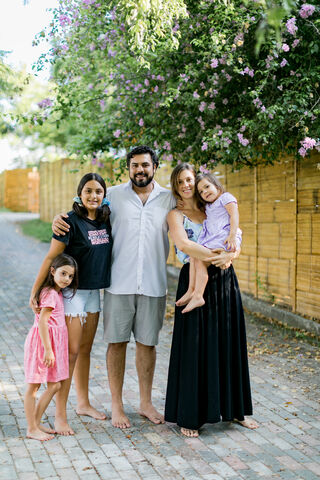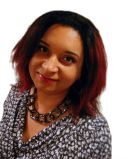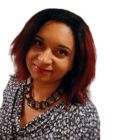Wisdom
Healers Need Teachers, Too
A medical doctor and Amazonian psychedelic healer describes his own journey.
Posted November 14, 2021 Reviewed by Lybi Ma
Key points
- Indigenous healers use psychoacive plants to address emotional pain.
- Learn about one healer in Ecuador who is both a medical doctor and traditional healer.
- Psychedelic plant medicines can reveal a path for achieving well-being.
Co-authored by Jonathan Flores, M.D. and Sofía Vizziano
(Continued from On Becoming a True Healer)
My Tiny Teacher
I remember as if it were only yesterday, that moment that changed my life forever. Alejandra had just come out of her mother's womb. After having been cleaned and wrapped in a blanket, the doctor handed her to me. I have never felt the force of life so strongly as I did then when that being, so pure and magical and powerful, was in my arms. I could see how a bubble-shaped protective field sealed us and kept us safe, together, united. And at that very moment, she looked at me with wide eyes, and a question came to me: "Dad, Dad, what are you going to teach me?"
This was the trigger that fired a flash of sudden clarity. Hundreds of scenes, images, and memories came flooding into my head. I could see myself as I never had before: my lack of commitment, my wayward flirtations with important things in life, my stubbornness, my immaturity. Alejandra was the medicine that brought true commitment to my life. Alejandra turned me into a real Medicine Man.
A Clear Path
From that day on, my path was clear. I was committed to the learning process, and I began to practice my disciplines with great sincerity. I sought to develop each of the teachings that the plant medicines gave me, and I continue to learn from their wisdom.

It was during this time that I could discern more clearly what biomedicine was missing; above all else, it lacked the commitment to go to the origin of illness. From the perspective of Western Medicine, the patient comes to the doctor's office with a “disease,” something that seems to have happened almost randomly, without explanation. A condition that is located only in one sector of the human system is identified and is treated in isolation. That is, if an individual has stones in their kidneys, the disease is diagnosed as "kidney stones” and it will be treated as the source of the problem (not the symptom), and as if were a discreet problem independent from all other aspects of the individual’s life. As such, a treatment is prescribed that attacks this "disease." And yet today we know that when we talk about a physical condition we are talking about a symptom, not a disease itself. Pain or the appearance of dysfunctions in the body are signals that our whole being has sent us to make it clear that something is amiss or stuck. The signs alert us, there is an aspect of our life that is out of kilter or has become stagnant; that it is not respecting the natural cycle of life-death-life. Of course, today we can find centuries of writings and practices that confirm the body-mind-spirit continuum. Biomedicine has yet to catch up.
According to the ancestral tradition of my land, a person who doesn't know joy in daily life is ill, as they have lost the memory and connection with their essential being. As such, they cannot recognize how meaningful life is. This sickness brings blockages on invisible planes, and then these blockages manifest in our personal reality in many ways—depression, traumatization, phobias, stress, isolation, addictions, toxic relationships, physical ailments, economic difficulties, lack of life-sense, among more.
In my work as an Ancestral Medicine Doctor, I have come across many patients who come looking for "the magic pill" for their psychological problems. They believe that the Ayahuasca, the Huachuma, or the Honguitos will be in charge of making the necessary changes in their lives. Currently, this has been the greatest challenge for those of us who work with ancestral medicines. The hard news is that only you can make the healing happen. No one can do it for you, not even a powerful psychedelic plant with an ancient spirit.
Where Does Healing Come From?
But then, how do we heal? Do we hide the symptom? Who heals us? The doctor, the shaman, the psychologist, the psychiatrist?
Ancestral Medicine reveals that plant medicines serve only as the catalyst for change by allowing us to see ourselves as we truly are. And herein lies their true power.
Plant medicines show us the urgency of making a commitment with ourselves; with our own being. This must be a silent and deep contract where there are no selfies, no podcasts, no posts, and no one watching. It is the difficult but humble path that we must walk alone; it is work where we arm ourselves with the courage to unravel our oldest and most entrenched barriers. Recovering and confronting difficult memories is a deep process of awakening to our own lives. Through it, we must, as it were, look ourselves in the eye and ask the most difficult question of all: What have I done to get where I am? In what ways have I constructed my illness? Answering that question is the healing process.

While plant medicines alone do not heal, they bring us step-by-step instructions to lift our sleeping spirit from too much false comfort. They wrestle with us to remove the veil of complacency and guide us with love and discipline towards the healer that we all carry within.
Those of us who practice the art of Ancestral Medicine must help in this transition to change the paradigm of healing, not only the "substance" with which the patient is treated but also the approach through which the healing is undertaken. To achieve success with psychedelics and to sustain the health of patients over time, it is necessary to stop approaching ancestral practices from a Western perspective. We must allow the memory of these plants, and the wisdom of the Indigenous people who have long been their heir, to penetrate us. We must allow it to soak into us so that we may come to share in their wisdom and vision about life and relationships. In this way, we will walk together towards a place of joy.
Dr. Flores lives in Ecuador with his wife and family and conducts both individual and group plant medicine therapy retreats at Nina Wasi. Join us for upcoming retreats just for clinicians and other healers.
References
Labate, B. C., & Cavnar, C. (2021). Ayahuasca healing and science. Springer. https://doi.org/10.1007/978-3-030-55688-4
Williams, M. T. & Labate, B. (2020). Diversity, equity, and access in psychedelic medicine. Journal of Psychedelic Studies, 4(1), 1-3. https://doi.org/10.1556/2054.2019.032


